Organising Committees
We have brought together all the current World Health Organization Collaborating Centers in India and academics, multi-laterals, civil societies and government organisations across the sub-continent, and globally to support the conference.
The conference is guided by the International Organising Committee, chaired by Prof Adnan Hyder from George Washington University.
Convening Committee
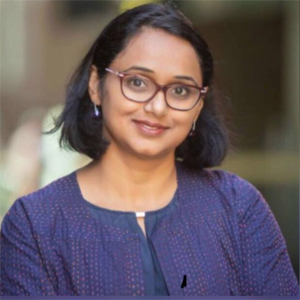
Jagnoor Jagnoor is an injury epidemiologist by training. As the Head of Injury Division in India, Jagnoor leads a team of researchers who are working to understand the impact of injuries and develop interventions to reduce the burden of injuries. She is also the co-director of the WHO Collaborating Centre for injury prevention and trauma care, and an Associate Professor at UNSW.
Jagnoor’ s research interests are exploring the impact of injuries, assessing issues of equity and vulnerability in the distribution of the burden of injuries, evaluating potential interventions to reduce the burden of injuries in Australia, Africa and Asia and contributing to data for decision making in preventing injuries and improving recovery post-injury. Jagnoor has a deep interest in social and political determinants of injury prevention. Her work builds on sustained engagement with communities/consumers, government, and the scientific community.
She finds work-life balance with her two children and her mutt. It's quite a sight to see Jagnoor attempting to cook while dancing!
She is very excited to be hosting you all at the Safety 2024.
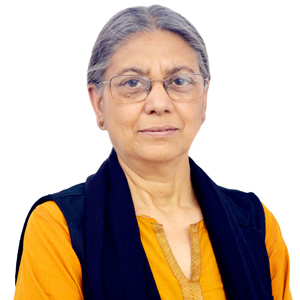
Geetam Tiwari is Professor at the Transportation Research and Injury Prevention Centre at the Indian Institute of Technology Delhi. Her research focus includes traffic and transport planning and traffic safety focusing on pedestrians, bicycles and bus systems and highway safety. She has worked with city, state and national government in India on public transport and road safety projects. She is editor-in-chief of the International Journal of Injury Control and Safety Promotion since 2009. She heads the WHO Collaborating Centre on Safety Technologies at TRIP Centre, IIT Delhi. She is recipient of many national and international awards such as IRTE & Prince Michael International Road Safety Award 2002 for ‘Extraordinary Contribution Toward Road Safety in India.”, Principal Voices Program Sponsored by TIME – CNN – Shell for Urbanization Issues in March 2006, She has received the degree of Doctor of Technology honoris causa from Chalmers University of Technology, Sweden in 2012.

Sanjeev Kumar Bhoi is a distinguished Professor in the Department of Emergency Medicine at the All India Institute of Medical Sciences (AIIMS), New Delhi. He holds the position of Head at the WHO Collaborating Centre for Emergency and Trauma. He has obtained his Doctor of Medicine (MD) degree in Medicine from Army Hospital Research and Referral, Delhi University. Over the course of his career, he has actively collaborated with experts, institutions, and universities worldwide to foster the development of academic emergency medicine in India.
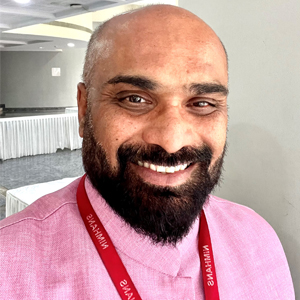
Gautham Melur Sukumar holds the position of Additional Professor in the Department of Epidemiology at the Center for Public Health, National Institute of Mental Health and Neuro Sciences. He also serves as the Head of the WHO Collaborating Center for Injury Prevention and Safety Promotion. He specializes in injury epidemiology, with a particular focus on road traffic injury epidemiology, injury surveillance, traumatic brain injury prevention, and enhancing public health strategies to enhance trauma care.
Scientific Committee
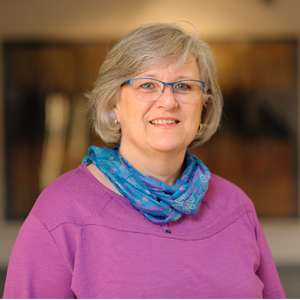
Margie Peden holds degrees in nursing and epidemiology and is an internationally recognized injury epidemiologist. She headed the unintentional injury prevention team at WHO for 17 years leading both world reports on Road traffic injury prevention (2004) and Child injury prevention (2008). She is currently the head of The George Institute’s global injury programme based at Imperial College London. She co-directs a WHO Collaborating Centre on Injury Prevention and Trauma Care.
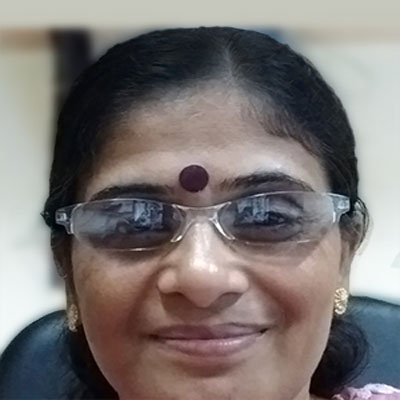
Dr Geetha R Menon has a doctorate degree in Biostatistics from the All India Institute of Medical Sciences. Her professional experience in clinical epidemiology, public health and research methods spans over two decades. She has served the Indian Council of Medical Research (ICMR) which is an apex body for formulation, coordination and promotion of biomedical research for more than 25 years. In the area of Trauma and Injuries, Dr Geetha Menon has more than 7 years of experience of reviewing trauma proposals and monitoring injury related projects. For her landmark leadership in building and promoting trauma translational research in ICMR, she was conferred the INDUSEM Academician & Researcher of the Year Award, 2013. She continues to guide young researchers in biostatistics and systematic reviews and plays an important role in designing and analyzing data from many nationally commissioned Task Force Projects of ICMR.
International Scientific Committee
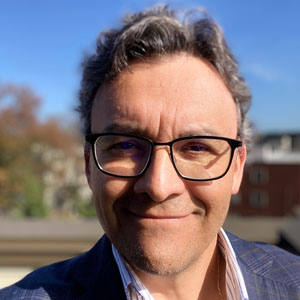
Andres Villaveces is a physician and epidemiologist with over 30 years of experience in global health. He is currently Senior Scientist at the US CDC and contributes to the implementation of the Violence Against Children and Youth Surveys (VACS). He is also member of the Global Reference Group on Children Affected by COVID-19 and Crisis. MD, Universidad del Bosque, Colombia (1991), MPH, Emory University (1996), Atlanta GA, and PhD in epidemiology (2000), University of Washington, Seattle WA. He has worked at the World Bank, RAND Corporation, University of North Carolina at Chapel Hill, Geneva Cantonal Hospital, and the World Health Organization in Switzerland. His work has focused on prevention of violence against children and youth, GBV, alcohol abuse and injuries, transportation safety, burn-related injuries, and occupational injuries. He has written several peer-reviewed publications, book chapters, and policy documents addressing injuries and global health issues, epidemiologic surveillance, and data to policy implementation.
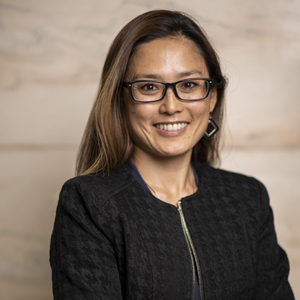
Chika Sakashita is currently the Director of Research and Accountability at the Global Alliance of NGOs for Road Safety. She leads the strategic planning and delivery of programs that guide advocacy, develop NGO capacity, and strengthen the accountability for road safety delivery, building the organisation’s and NGOs’ impact in road safety. Chika brings a wealth of experience in road safety – in government, academic research, NGO advocacy, as well as consulting to multiple international organisations and governments, advising and supporting evidence-based policies and interventions in states, countries, regions and globally. Chika has a PhD from the School of Public Health and Bachelor of Psychology from the University of Sydney. Chika is also the Managing Editor of the Journal of Road Safety and previously worked for the George Institute for Global Health. She enjoys research that has direct applications in policy and practice in the fields of road safety, health and climate change.

Dr Colleen Saunders (PhD) is a Senior Lecturer in Emergency Medicine at the University of Cape Town in South Africa where she supervises several postgraduate students and manages the research portfolio for the Division of Emergency Medicine. She is an injury epidemiologist with a special interest in drowning and traumatic injury in low- and middle-income settings. She serves in a voluntary capacity as the Deputy Director of Drowning Prevention for Lifesaving South Africa, chairs the Royal Life Saving Society Commonwealth Diploma Committee and is currently serving as a member of the WHO Technical Advisory Group for the development of the Global Status Report for Drowning Prevention.
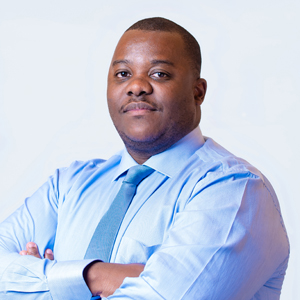
Dennis Mazingi is a medical doctor and general surgeon with a special interest in paediatric injury prevention, global surgery, and surgically correctable NCDs. He has worked in clinical medicine and surgery in southern Africa for almost a decade and Dennis obtained his undergraduate medical degree at the University of Malawi and an Master’s in Medicine (MMed) in General Surgery at the University of Zimbabwe. He holds an MSc in International Health and Tropical Medicine (IHTM) from the University of Oxford and is a fellow of the College of Surgeons of South Africa. He is currently pursuing a DPhil in the University of Oxford’s Nuffield Department of Surgical Sciences.
His work focuses on trauma surveillance and quality improvement in paediatric trauma care in LMICs and Africa, global surgery, paediatric surgery, and general surgery. Dennis’s other interests lie in clinical surgery, surgical education, disruptive health technologies, frugal innovations, health systems and implementation research.
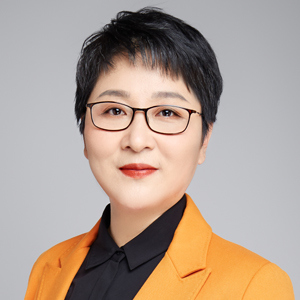
Dr. Duan Leilei is the Director of the Injury Prevention and Mental Health Division of the National Centre for Chronic and Non-communicable Disease Control and Prevention, China CDC. Dr Duan Leilei’s major achievements include took the lead in establishing the National Injury Surveillance System (NISS) in China, organised the national injury intervention programs and related researches for developing the injury prevention strategies, policy consultation and capacity building of CDC injury prevention team.
Dr. Duan Leilei is trained as a physician and also holds post-graduate qualifications in public health management and epidemiology. She worked as a physician for 7 years before went to China CDC.
And she is:
• Country focal person on injury prevention of WHO, China
• Former Associated editor of BMJ-Injury prevention
• National data coordinator of Global status report on road safety, China
• National data coordinator of Global status report on violence prevention, China
• Honorary Professorial Fellowship of George Institute, University of New South Wales.
• Adjunct professor of University of Washington, USA
• Expert committee member of National Working Committee of Children and Women
• Member of the National Advisory Committee of experts on disability prevention
• Vice chairman of disability prevention and Control Professional Committee of Chinese Preventive Medicine Association
• Standing member of geriatric disease prevention and Control Professional Committee of Chinese Preventive Medicine Association
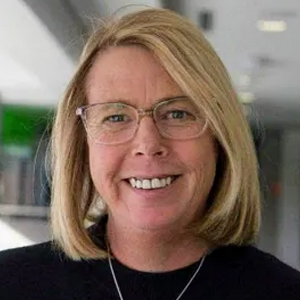
Julie Brown BSc, PhD, heads the Injury program at the George Institute for Global Health, Australia, is Co- Director of the Transurban Road Safety Centre at NeuRA, and Professor, School of Population Health, UNSW. She works across the continuum of the public health model from defining problems, identifying risk and protective factors, developing and testing interventions to monitoring and evaluating implementation of interventions designed to reduce the burden of injury and has demonstrated expertise in multi-disciplinary research methods. Her career vision is to reduce the health burden attributable to injury by delivering tangible ways to prevent road crash related injury and unintentional injury more broadly. Prior to completing her PhD at UNSW in 2008, she worked for >20 years in vehicle and equipment safety research and policy development for the NSW government. Insight into research needs for regulatory and policy development from this experience continues to frame her research.

Julie qualified in medicine and worked in Primary Care, Community Paediatrics and Public Health before joining the University of the West of England, Bristol, UK in 2012. She is a Professor of Public Health and leads the Global Health Research theme in the university’s Centre for Public Health and Wellbeing. She has a longstanding interest in the impact of social and environmental factors leading to inequalities in health experience and outcomes of children and young people. Her global health research interests focus on building the evidence base and strengthening research capacity to inform injury prevention interventions and policy development. She is currently leading an NIHR Health Policy and Systems Research award to improve road safety in Nepal www.nirc.org.np
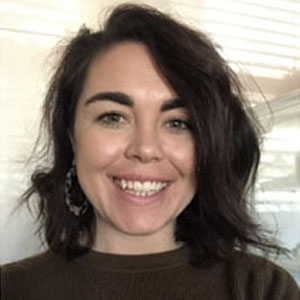
Keziah Bennett-Brook is a Torres Strait Islander woman and Program Head of Guunu-maana (Heal) The George Institute’s Aboriginal and Torres Strait Islander Health Program, Executive Member of the Australasian Injury Prevention Network, and Indigenous Committee lead. Keziah Chairs the Research Committee for Aboriginal and Torres Strait Islander Health since 2017 and leads the development and implementation of Aboriginal and Torres Strait Islander health research strategy, policy, stakeholder partnerships and Indigenous research coordination within a global research institute. Keziah has extensive experience in social and cultural determinants of health, Indigenous methodologies, and knowledge translation and impact measurement that privilege Indigenous knowledges, as well as applying decolonising methods to organisational and systems change. Keziah leads implementation of strategic organisational activities to increase cultural safety and capability within global health research.
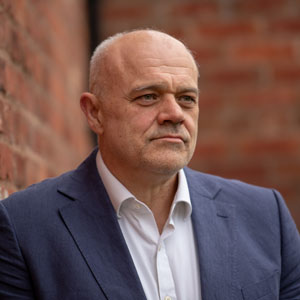
Prof Mark Bellis is Director of Health Research and Innovation and Professor of Public Health and Behavioural Sciences at Liverpool John Moores University. For over a decade he has been the UK Focal Point to the WHO on violence and injury prevention. During this time, he established two WHO Collaborating Centres (in Violence Prevention and in Investment for Health and Well-being) and has worked widely with other international agencies. Mark undertakes national and international research and development in fields including Adverse Childhood Experiences, violence prevention, alcohol, drugs, and sexual health. His work spans original research studies, systematic reviews, health economics and policy implementation. He has published over 240 academic papers and over 300 applied public health reports and books. Mark is a registered Consultant in Public Health in the UK National Health Service and actively engaged in programmes to combine health service and other public sector data for health improvement.
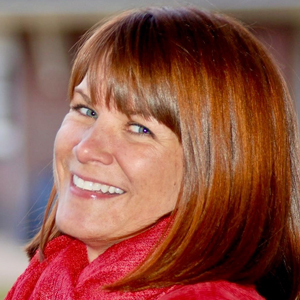
Morag MacKay holds degrees in nursing and epidemiology and her professional activities over the last 30+ years have largely focused on the child injury prevention in the areas of surveillance, education, research, program and policy planning and evaluation in Canada, Europe and the U.S. From 2004-2015 she managed several large multi-country aimed at bridging the evidence to action gap and supporting adoption and implementation of evidence-based good practices for the prevention of injuries to children and youth in Europe.
She is currently Chief Research and Network Officer at Safe Kids Worldwide (SKW), where she is responsible for ensuring all aspects of SKW’s work are informed by data and research evidence, supporting evaluation efforts and providing leadership for their Network of over 400 U.S. coalitions and their global network, the Safe Kids Worldwide Alliance. She is also currently chair of the US National Water Safety Action Plan steering committee.
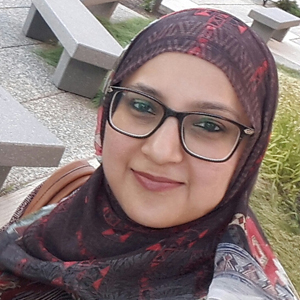
Nukhba Zia, MBBS, MPH, PhD is a medical doctor and a health systems researcher with over 10 years of experience working in several countries in Africa and Asia. She is an Assistant Scientist in the Health Systems Program of the Department of International Health at Johns Hopkins Bloomberg School of Public Health (JHSPH) and a core faculty member of the Johns Hopkins International Injury Research Unit. Her research focuses on assessing health systems at the intersection of injuries, disability, and rehabilitation. She is particularly interested in developing the capacity of researchers to generate evidence for utilization by a broader audience including policymakers. She co-directs the Master of Science in Public Health (health systems) program and teaches several graduate courses including a graduate-level course at JHSPH on the burden of injuries. She received her medical degree from the Aga Khan University, Pakistan, and MPH and PhD in Health Systems from JHSPH.
National Organising Committee

Gautham Melur Sukumar holds the position of Additional Professor in the Department of Epidemiology at the Center for Public Health, National Institute of Mental Health and Neuro Sciences. He also serves as the Head of the World Health Organization (WHO) Collaborating Center for Injury Prevention and Safety Promotion. He specializes in injury epidemiology, with a particular focus on road traffic injury epidemiology, injury surveillance, traumatic brain injury prevention, and enhancing public health strategies to enhance trauma care.

Geetam Tiwari is Professor at the Transportation Research and Injury Prevention Centre at the Indian Institute of Technology Delhi. Her research focus includes traffic and transport planning and traffic safety focusing on pedestrians, bicycles and bus systems and highway safety. She has worked with city, state and national government in India on public transport and road safety projects. She is editor-in-chief of the International Journal of Injury Control and Safety Promotion since 2009. She heads the WHO Collaborating Centre on Safety Technologies at TRIP Centre, IIT Delhi. She is recipient of many national and international awards such as IRTE & Prince Michael International Road Safety Award 2002 for ‘Extraordinary Contribution Toward Road Safety in India.”, Principal Voices Program Sponsored by TIME – CNN – Shell for Urbanization Issues in March 2006, She has received the degree of Doctor of Technology honoris causa from Chalmers University of Technology, Sweden in 2012.

Prof Jhareswar Maiti P C Mahalanobis distinguished Educator, Suresh and Vidya Nair Chair Professor and IEOM Outstanding Professor in Occupational Safety and Health, is a full Professor and Head of the Department of Industrial and Systems Engineering (ISE) at Indian Institute of Technology (IIT) Kharagpur. He is also the founder chairman of the Centre of Excellence in Safety Engineering and Analytics (CoE- SEA) at IIT Kharagpur.
Prof Maiti carries out inter- & multidisciplinary research on the interfaces of engineering, management science, artificial intelligence and statistics including analytics with more than 23 years of experience in teaching, research, and consulting. He works with world leading companies like Tata Steel Limited, Adani Group, Coal India, Haldia Petrochemicals, etc. He is the Member of several societies including Royal Statistical Society, Institute of Engineers (India), Institute of Industrial and Systems Engineering, IEEE, etc.
Prof Maiti has authored over 200 publications, a textbook entitled “Multivariate Statistical Modeling in Engineering and Management” and has edited several books. He has been consistently listed in the top 2% researchers in the world by Stanford University ranking for last several years. He is currently serving in the Editorial Board of Safety Science, International Journal of Injury Control and Safety Promotion, and Safety and Health at Work.
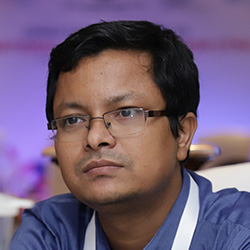
Dr. Manas Pratim Roy is a public health specialist. He has got an MD in Community Medicine from King George's Medical University, Lucknow. Dr Roy is working as the Assistant Director General in the Directorate General of Health Services, Ministry of Health and Family Welfare, Govt. of India, for more than 6 years. He has represented India in many international forums and has authored numerous articles in national and international journals. Dr Roy has also contributed to the national guidelines on different health topics for India. His research interests include non-communicable diseases and trauma.
.jpg)
Dr Nobhojit Roy trained as a General and Trauma surgeon in Mumbai, India, and the U.K. He also cross-trained with a Masters in Public Health from John Hopkins University, Baltimore, USA and a PhD from the Karolinska Institutet, Stockholm, Sweden, with a focus on trauma outcomes and delivering healthcare in resource-poor settings. Currently, he is the Technical Officer (Operative Care), Clinical Services & Systems unit, Integrated Health Services department at WHO Headquarters, Geneva, and Adjunct Professor (Research) for Clinical Registries at Monash University, Melbourne. On the health policy front, Dr Roy has been the National Advisor, Public Health Planning and Evidence at NHSRC - Ministry of Health & Family Welfare (MoHFW); Director, Health Systems Strengthening and Knowledge partnerships at CARE-India, Bihar and was the Southeast Asia Health Hub lead at Oxford Policy Management. His academic, clinical and research career for two decades, was as the Professor & Chief of Surgical services at the Bhabha Atomic Research Centre (BARC) Hospital, HBNI University, Mumbai, under the Universal Health Care scheme.
He has been the Lancet commissioner for Global Surgery and for NCDs and Injuries in the poorest billion (www.ncdipoverty.org).
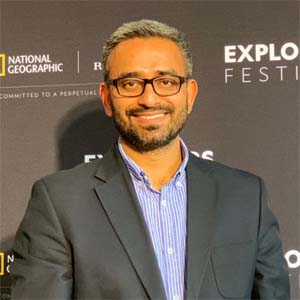
Piyush Tewari Piyush is the Founder and Chief Executive Officer of SaveLIFE Foundation (SLF), a nonprofit organization committed to saving lives on roads in India and beyond. He is best known for getting India its Good Samaritan Law and for developing an award-winning model to reduce fatalities on Indian highways. Tewari holds an MPA from Harvard and is a recipient of the National Leadership Award from the President of India.
In 2019, Piyush was recognised as a World Economic Forum Young Global Leader. He is a member of India’s National Road Safety Council, the apex policy-making body for road safety in India.

Dr Sanjeev Kumar Bhoi is a distinguished Professor in the Department of Emergency Medicine at the All India Institute of Medical Sciences (AIIMS), New Delhi. He holds the position of Head at the WHO Collaborating Centre for Emergency and Trauma. He has obtained his Doctor of Medicine (MD) degree in Medicine from Army Hospital Research and Referral, Delhi University. Over the course of his career, he has actively collaborated with experts, institutions, and universities worldwide to foster the development of academic emergency medicine in India.
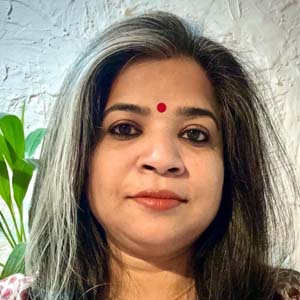
Sarika Panda is Director at Nagarro and Founder Trustee of Raahgiri Foundation. Sarika is leading the Raahgiri Day movement, India's first sustained open street program in Haryana and Delhi. She is also helping other cities across India to replicate this hugely successful concept.
Sarika is also leading the active mobility, gender and mobility, complete street work and Road safety (Vision Zero) work in Haryana. Sarika has about 15 years of experience in the field of urban developments, transport, environment and architecture.
Sarika was selected as one of the 60 global women leaders in the world who making a change in how we move in out cites. The recognition came from TUMI, Germany. In 2019 Sarika was selected as the bicycle mayor of Gurugram by BYCS, Netherlands.
Sarika has been formally trained as an architect and urban planner. She has a Bachelor’s degree in Architecture and a Master’s degree in Planning from the School of Planning and Architecture, New Delhi. Sarika also has a Master’s degree in Sociology.
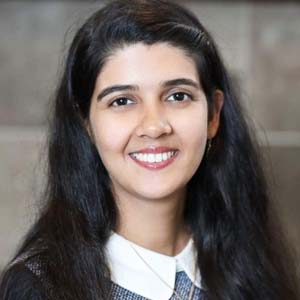
Dr Stuti Bhargava is a public health scientist (Scientist E -Medical) in the Division of Development Research at the Indian Council of Medical Research (ICMR), New Delhi. Her research work primarily focuses on Trauma, Emergencies, and Burns and around the area of Non-communicable diseases. Dr Bhargava holds a PhD in Public Health and Master’s in Dental Sciences. She has done more than 30 certificate courses and also has four Fellowships from renowned institutions like National Institutes of Health (NIH), USA, International Agency for Research on Cancer (IARC), WHO, and Harvard Medical School. She has over 30 publications and several grant and awards in her name.
Scholarship Committee
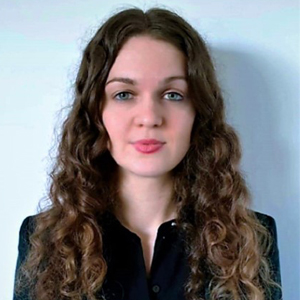
Carlene McAvoy Carlene is the Leisure Safety Manager for the Royal Society for the Prevention of Accidents (RoSPA) and manages the drowning prevention programmes across the UK. As part of this role, Carlene provides the Secretariat to the National Water Safety Forum as well as Water Safety Scotland.
Some of Carlene's key achievements in the field of drowning prevention include: Founder of Water Safety Scotland, lead author of Scotland’s Drowning Prevention Strategy and co-creator of the Drowning and Incident Review (DIR)- the background of which was published in BMJ Injury Prevention. Carlene also recently completed the World Health Organization's (WHO) Mentor VIP programme and is an Honorary fellow for the George Institute for Global Health.
As well as working in drowning prevention, Carlene is a PhD researcher in Public Health at Glasgow Caledonian University. Her work focusses on Gender Based Violence and in particular sexual violence and the healthcare response.
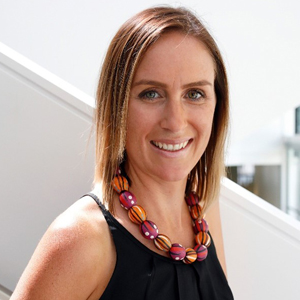
Associate Professor Courtney Ryder Associate Professor Courtney Ryder is the Discipline Lead for Injury Studies at Flinders University. As an Aboriginal injury epidemiologist her research is leading new ways of working with Indigenous Data through knowledge interface methodology and Indigenous Data sovereignty to change the deficit discourse surrounding Aboriginal and Torres Strait Islander health statistics. Her injury research spans paediatrics, burns, traumatic brain injury, and road traffic injuries, all focussed on working with Aboriginal and Torres Strait Islander communities. Ryder holds adjunct appointments with the George Institute for Global Health and School of Population Health at the University of New South Wales. She is a member for the South Australian Public Health Council, Board Director for the Council of Academic Public Health Institutions Australasia and Executive Members for the Indigenous Engineering Group through Engineers Australia. In addition to her injury work, Ryder is recognised for her work in cultural safety and Aboriginal health education. With over a decade’s experience in design and coordination of large and complex topics, this work has transformed student education, and is being used to train clinical burns teams at Westmead Hospital.
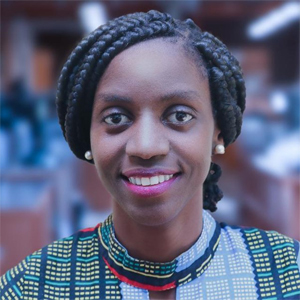
Esther Bayiga-Zziwa is a research fellow and PhD candidate within the department of Disease Control and Environmental health at the School of Public health, Makerere University (MakSPH). Within the department, she is attached to the Trauma, Injury and Disability unit that specializes in intentional and un-intentional injury research. Her research interests include; injury epidemiology and road safety research with focus the built environment, post-crash emergency care, costing of health interventions and evaluation of their effectiveness. Her PhD research specifically focuses on pedestrian safety and the built environment in Kampala city, Uganda.
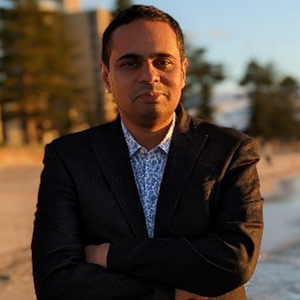
Soumyadeep Bhaumik is a medical doctor and international public health researcher working in the George Institute for Global Health. His work is focused on employing and innovating on a diverse range of methodologies as fit-for-purpose approaches for public health research and practice, including for program evaluation .Soumyadeep has a demonstrated history of impactful work which has informed multiple WHO guidelines, national and sub-national policies, and stimulating discussion in public discourse. Soumyadeep primary works on evidence synthesis, meta-research, health systems , and policy analysis. He takes a disease agnostic approach, but recent work has a focus on snakebite and drowning. Soumyadeep is also interested in addressing inequity, and in understanding moral philosophies which underpin current research and global health ecosystems.
